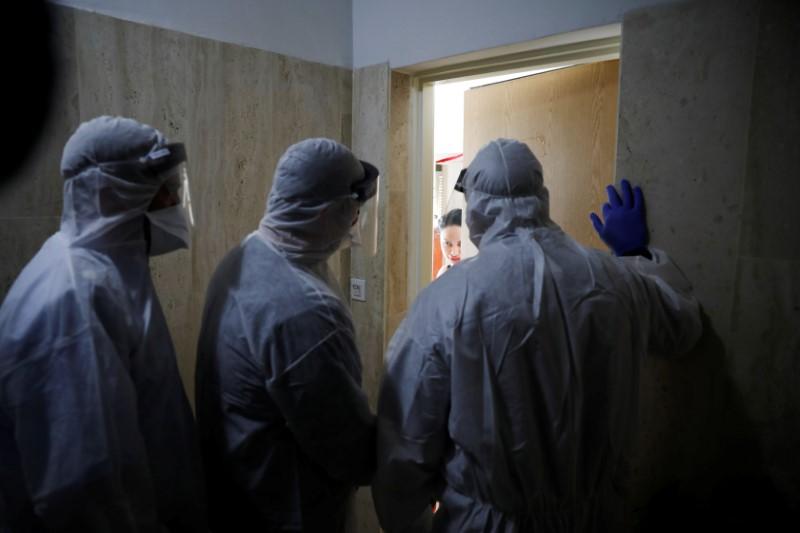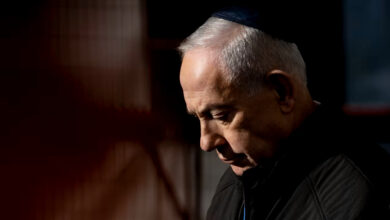
JERUSALEM (Reuters) — Civil liberties activists asked Israel’s Supreme Court on Thursday to suspend cellphone monitoring put in place under emergency regulations to try to slow the spread of the coronavirus.
Surveillance began this week after the government approved special orders that circumvented customary parliamentary oversight and enabled the Shin Bet counter-terrorism agency to tap into cellular location data.
The Association of Civil Rights in Israel, Adalah — The Legal Center for Arab Minority Rights — and the Joint List of Arab parties petitioned the court to freeze the monitoring.
“The government cannot bypass the legislature and hide behind a general state of emergency to commit such extreme human rights violations,” Adalah said in a statement. “This crosses a red line no less troubling that the coronavirus epidemic itself.”
The Health Ministry said it had already alerted some 400 people found to have been near a coronavirus carrier. The cabinet set a two-week period for the emergency rules.
Prime Minister Benjamin Netanyahu has said waiting for parliament to act would have wasted time and cost lives.
Israel has 529 confirmed coronavirus cases and Netanyahu has said he will issue lockdown orders unless people step up compliance with guidelines urging them to stay at home.
Parliament was sworn in on Monday but Netanyahu’s right-wing Likud and the centrist Blue and White party led by his main rival Benny Gantz were at loggerheads over formation of legislative committees, including one that would address the cyber-monitoring issue.
Asking the court to dismiss the petitions, the state said that once parliament establishes a committee that can draw up a law governing monitoring procedures during the health crisis, the cabinet will seek “normal legislation”.
Netanyahu has been accused by political opponents of taking action that undermines democracy, allegations he denies.
Protesters waving black flags tried to reach Jerusalem in a convoy on Thursday, Israeli television showed. Police called the hundreds of cars taking part an “illegal demonstration” that was disrupting highway traffic, and said they was being diverted.
On Sunday, the justice minister, a Netanyahu appointee, cut back on court hearings, citing the need for social distancing. The move delayed by two months, until May, the opening of the prime minister’s trial on bribery, breach of trust and fraud charges.
He denies any wrongdoing.
On Wednesday, the speaker of parliament, a Likud member, adjourned proceedings rather than pursue a vote on the composition of various committees.
Those panels, if controlled by Blue and White, could pursue legislation banning a criminal suspect from forming a government. Yuli Edelstein said he would convene parliament on Monday.
Gantz has the support of 62 of parliament’s 120 members and has been tasked with putting together a ruling coalition. If he fails, Netanyahu is likely to be tapped next to try. Israel has held three inconclusive elections in less than a year.
(This story has been refiled to add dropped first name in paragraph 15)
Reporting by Jeffrey Heller; Editing by Timothy Heritage
Image: Health Ministry inspectors speak with a woman who is in self quarantine as a precaution against coronavirus spread in Hadera, Israel March 16, 2020 REUTERS/Ronen Zvulun




